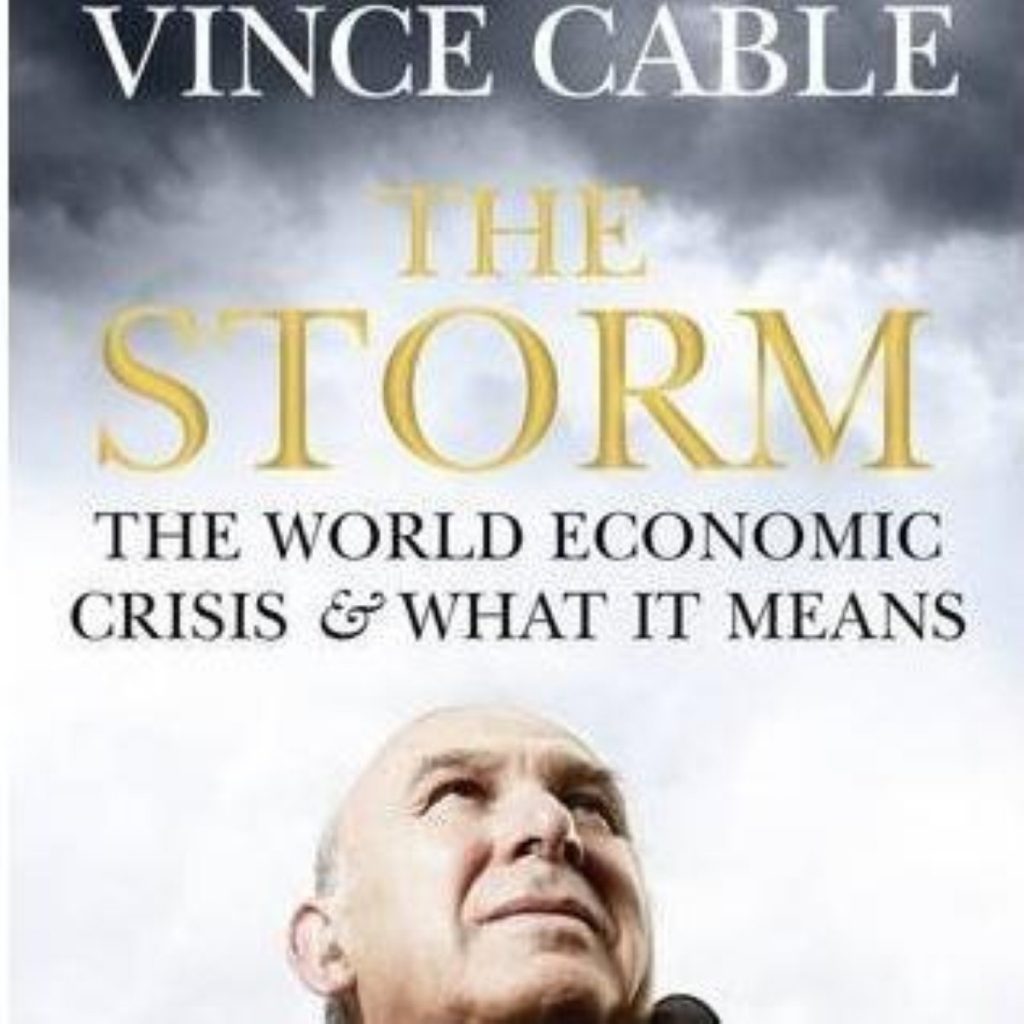Review: The Storm
Vince Cable – The Storm: The World Economic Crisis and What it Means.
Atlantic Books – April 1st 2009
Review by Matthew Gardner
Vince Cable, the crusader of the credit crunch and the only man who people widely accept as a political foreseer of the current economic downturn, has finally decided to put pen to paper and tell us why he was right.


For those unaware of Cable’s background, the man was formerly the chief economist at Shell between 1995 and 1997, a company whose income is larger than the GDPs of too many countries in the world to name.
In the piece, the Liberal Democrat spokesman for the Treasury essentially travels through time between the foundations of modern economies and the future we have ahead of us. He opens the book with the fact that despite the inter-war period and the bloodshed which was associated with political unrest following the Great Depression, humanity has had a form of collective amnesia.
The shock factor sets in quite early, when he declares that many believe that “peaceful international economic integration will not again be destroyed by government incompetence and atavistic nationalism”.
He corrects this straight away with two hard-hitting words implying that belief may not be enough, stating: “We hope.”
The worrying jolts from Cable continue in his explanation of China’s role in international affairs. He notes that despite having a one-party system and over a billion people under its wing, the country that was once so isolationist is now playing a key part in lending following modernising reforms by Deng Xiaoping.
With capitalism balancing on a knife edge, it makes you truly consider the benefits of a political code of conduct which we have thought as little more than a totalitarian and, strangely, barbaric way to live.
His experience in the world of oil also pays dividends – at least one thing that does in the current market, I’m sure he would agree – with his emphasis on the roles of Opec and other leading nations in the Middle East who look to control the future of the West following its increased dependency on importing.
The most interesting part was Cable’s explanation of the resurrection of Thomas Malthus’ philosophy, a man whose pessimism during the Industrial Revolution focused on the growth in population and the finite nature of basic human necessities.
At the time, these were largely dismissed by all but many utilitarians (including John Stuart Mill) but the focus of humanity seems to have been made fully aware of them following the widespread collapse of international banking systems.
This chapter on the 19th century expert was then applied in principle to the problems regarding Northern Rock and other so-called “awkward newcomers” in the following section, with names that are still very fresh in the mind making appearances to remind us just how fast this is moving and – many may hope – how we can quickly respond to it and put a lid on it. One thing’s for sure: the international system is not fully to blame, with deregulation in the UK also coming into focus.
The pace of global change is comparable to the pace of the book, with a person easily having the ability to read it in one go. It’s not hard to buzz through it in a matter of hours and be thoroughly engaged, although it’s still a bit of a Michael Moore thing: you have to take it with a pinch of salt.
Either way, Cable makes some wonderful points. It’s just a shame the Liberal Democrats will always be seen as a third party, as it’s hard for many people to turn down the ex-Shell chief economist as a member of any ruling party. It makes you wonder why he’s not in charge of the party, more than anything else.
The thing that people ought to give Cable credit for is how he has the guts to be able to respond quickly and effortlessly to the crisis at hand, weighing up the ramifications of the current situation and presenting them in an easy-to-read and short account which is well explained and free from glaring mistakes. The solid mentions of Northern Rock as well as Fannie Mae and Freddie Mac have added to this contemporaneous account which truly should be handed to every MP and lord in the houses of parliament.
It’s something that the Cameron/Osborne or Brown/Darling partnerships may not be able to do without an uproar. Many cynics may say that the brains behind the Lib Dems knows that he won’t be listened to because of his party credentials; the people who read the book will understand that he simply knows what he’s talking about.
I suppose the irony lays in the fact it’s 170 pages about the bad economy for £14.99. Cable blatantly knows the importance of making a solid profit in times of financial need. Full credit to him, I say.

